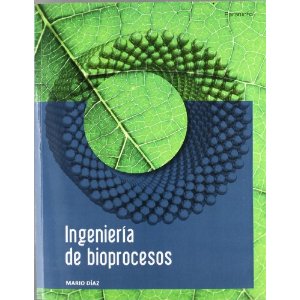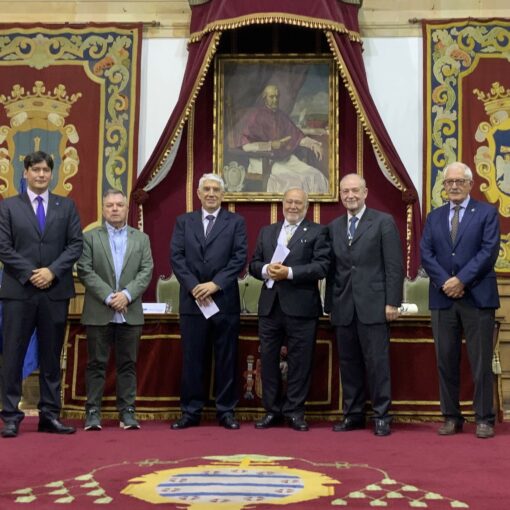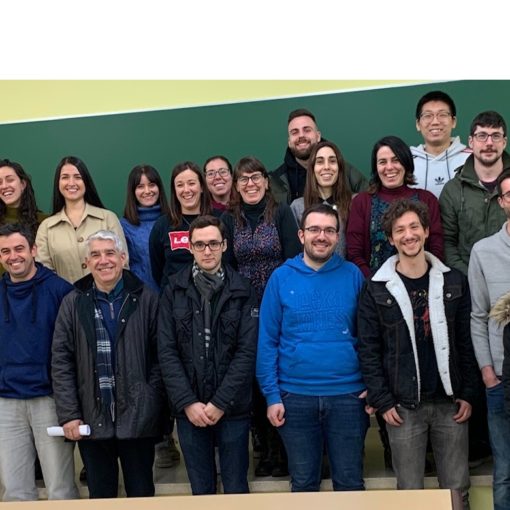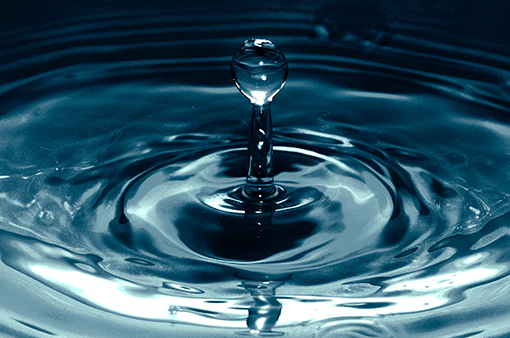Extracted from diario La Nueva España, 31 october 2020.
The professor of Chemical Engineering closes The Science Week by stimulating the laboratory’s connection with the market and the potential for the transformation of biological waste.
The road takes many turns, and you have to dodge a multitude of obstacles, to go from waste sludge to a valuable and profitable material: a fertilizer, a detergent, a bottle of bioplastic. The route also becomes entangled, when the starting point is the University’s laboratory and the goal is an industrial plant for large-scale production. In the discovery of the strategy to clear these two routes, which run in parallel and with many intersections between them, professor Mario Díaz, fifth and last speaker of the fifth Science Week “Margarita Salas”, organized by LA NUEVA ESPAÑA and sponsored by Química del Nalón, Bayer, Asturagua, Ieducae and the Fernández-Vega Ophthalmological Institute.
The researcher, professor of Chemical Engineering at the University of Oviedo, closed the informative cycle with a clear apology for the transfer of knowledge and a call for attention on the second life of biological waste as a vault key to a future that will encourage the bioeconomy and the circular economy, which is already knocking at the door, “just around the corner”. Because immediately, here and now, aid from the European reconstruction fund will finance projects that are primarily «green, sustainable and digital»..
Mario Díaz displayed in the Asturian Press Club of LA NUEVA ESPAÑA the necessary processes and the alternatives for transforming the sludge from water treatment plants and finished highlighting that from the laboratory to industry and from waste to profitable by-products there are so many open alternatives on the research side «we need more cooperation with industrial reality to be able to decide which ways to go and which to deepen.» «The factors that we use for the selection of alternatives are sometimes very poor» due to lack of contact with the industry, and there he called for conceiving science and technology «as a hybrid. Both must walk together, knowing that having good technology is not going to ensure good science, nor does good basic science guarantee good technology ”.
The engineer got to that point starting from the sewage sludge, its complex transformation processes, its enormous possibilities for revalorization and the complex difficulties for its revaluation. He used it to illustrate why neither science nor research is sometimes sufficient if «what has possibilities?, what is feasible and what is crazy?, what processes will not need very expensive techniques?» and, above all, it is not verified what is going to have a real market. The whey of the milk used to make cheese, exemplified by going to one of the investigations developed and outstanding in this field, has traveled part of that journey. «It was just a waste and now many of the by-products obtained from it have more value than milk», but reusing it and transforming it into something with added value was only «something impossible until suddenly the market appeared, children products, for example ”, and the project took off.
The fact is that all this is a forward sowing, a clear preview of a future that is already coming and in which the demand for the transition from «a society of fossil materials to one of renewable materials» is being made. Díaz spoke of the influence of the bioeconomy and the circular economy «in many current policies», in Spain and Europe, and the long way ahead.
«The use of waste in Spain has so far been a failure,» he assumed. «The number of those who have managed to convert is still small, perhaps they can be counted on the fingers of the hand,» he proclaimed, putting his hope in the new law on waste and contaminated soils, which is currently being processed and may give more facilities for the transformation of waste into by-products and their use. The previous legislation did not encourage at all, this seems more favorable, but we will have to see how it develops, «he added with the awareness that everything is going that way. Also in Europe, he said in reference to the also recent and still unfinished process of the Carbon Adjustment on the Border, the “environmental taxes” that aims to unify the forms of industrial production in the world in terms of the CO2 that is generated and that in addition to advancing an incentive to protect Asturian industry from unfair competition, underlines Díaz, «it can drastically change the evolution of the industry that we know.»
The speaker wanted to exemplify everything said with the research works on the transformation of the sludge that remains after the water purification processes, a waste model that until now «we get out of the way», one of the materials that keep within themselves a potential for reuse. The sludge, a «very mixed waste, with a very complex composition,» has two thirds of organic matter «and when thinking about it in terms of revalorization» the first thing seems to be thinking about its energy possibilities, «says Díaz. However, the amount of usable energy is very low, and its structure invites more to do than “give place to the supply of materials. We are working on that. It has a structure that has a value ”and a “potential for some high value-added products”. The one that leads to fertilizers is advanced, but the list of alternatives bifurcates the procedures and the finish line generates materials that will give to detergents or cosmetics, to bioplastics for packaging, bottles, containers or diapers, and so on as far as science and a technology well connected with the industry know how to get there.
The most followed conference of the cycle touched 17,000 reproductions
The Science Week «Margarita Salas» closed its most unusual edition yesterday, with the date of celebration altered by the pandemic – from March to October – and a new and obligatory hybrid format between face-to-face and telematics. Making a virtue of necessity, the talks of the program – all of them were broadcast through the digital edition of this newspaper – accumulated a more than remarkable following, reaching the top in the presentation that the virologist Margarita del Val offered last Tuesday on vaccines and that accumulated 16,913 total reproductions in its online version, located in 45 countries on four continents. It is not bad at all for a scientific conference, as highlighted yesterday, at the close of the conference, its coordinator, researcher Amador Menéndez Velázquez.
The cycle of scientific dissemination organized by LA NUEVA ESPAÑA made throughout this week a markedly interdisciplinary complete journey, but with abundant prominence from the bio branch, for obvious reasons of the current situation of the pandemic. The program, entirely offered in telematic format, included three face-to-face lectures, those offered at the Asturian Press Club by the industrial engineer Íñigo Felgueroso, the doctor Alfonso López Muñiz and yesterday the chemical engineer Mario Díaz, and two exclusively online, closely connected with the analysis of the coronavirus pandemic, that of the biochemist and virologist Margarita del Val and that of the biologist specialist in virus Ester Lázaro, both researchers from the Higher Council for Scientific Research (CSIC).
In an edition of accused propensity towards changes, the Science Week has premiered in this fifth edition the tribute that from now on will link its name to the name of the Valdesana researcher Margarita Salas. The tribute to the memory of biochemistry opens when there are few dates left until the first anniversary of his death is fulfilled, on November 7, 2019.




